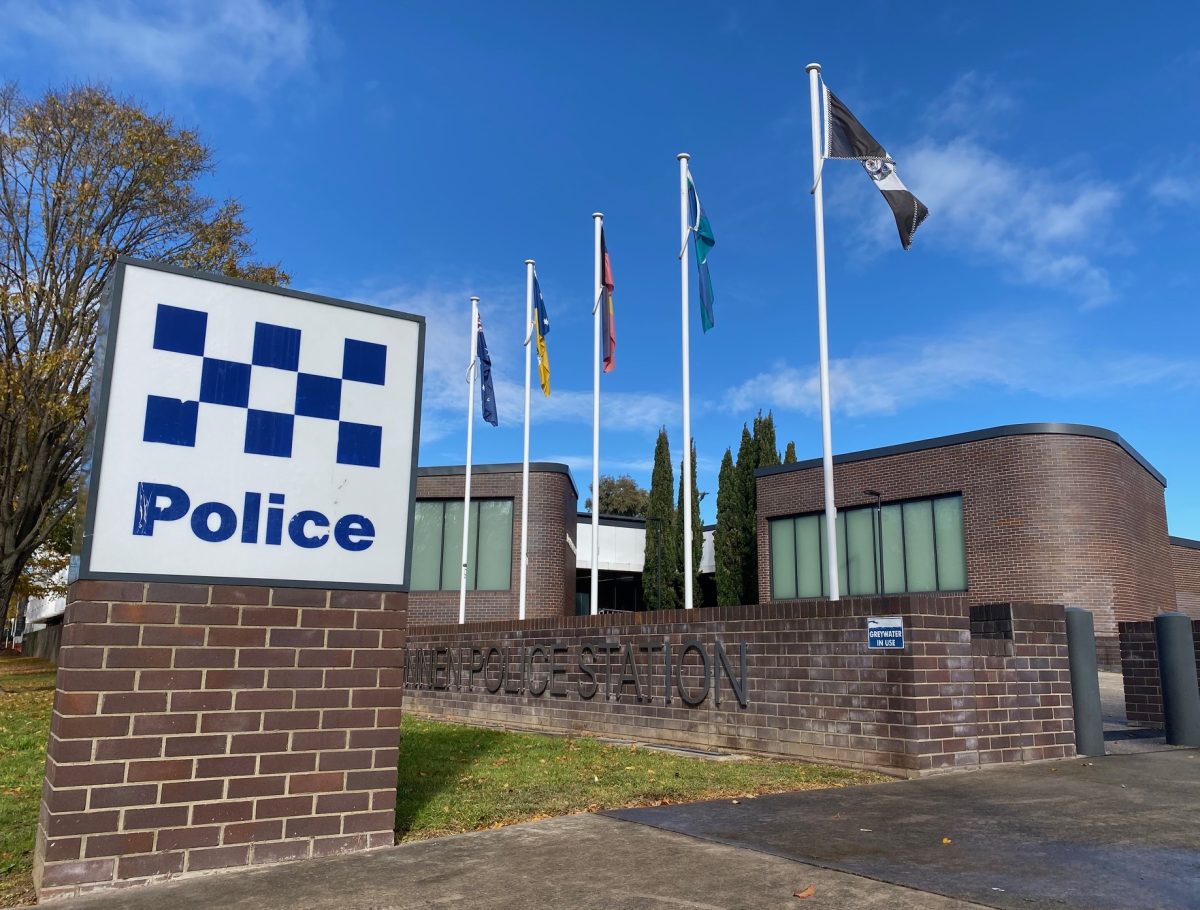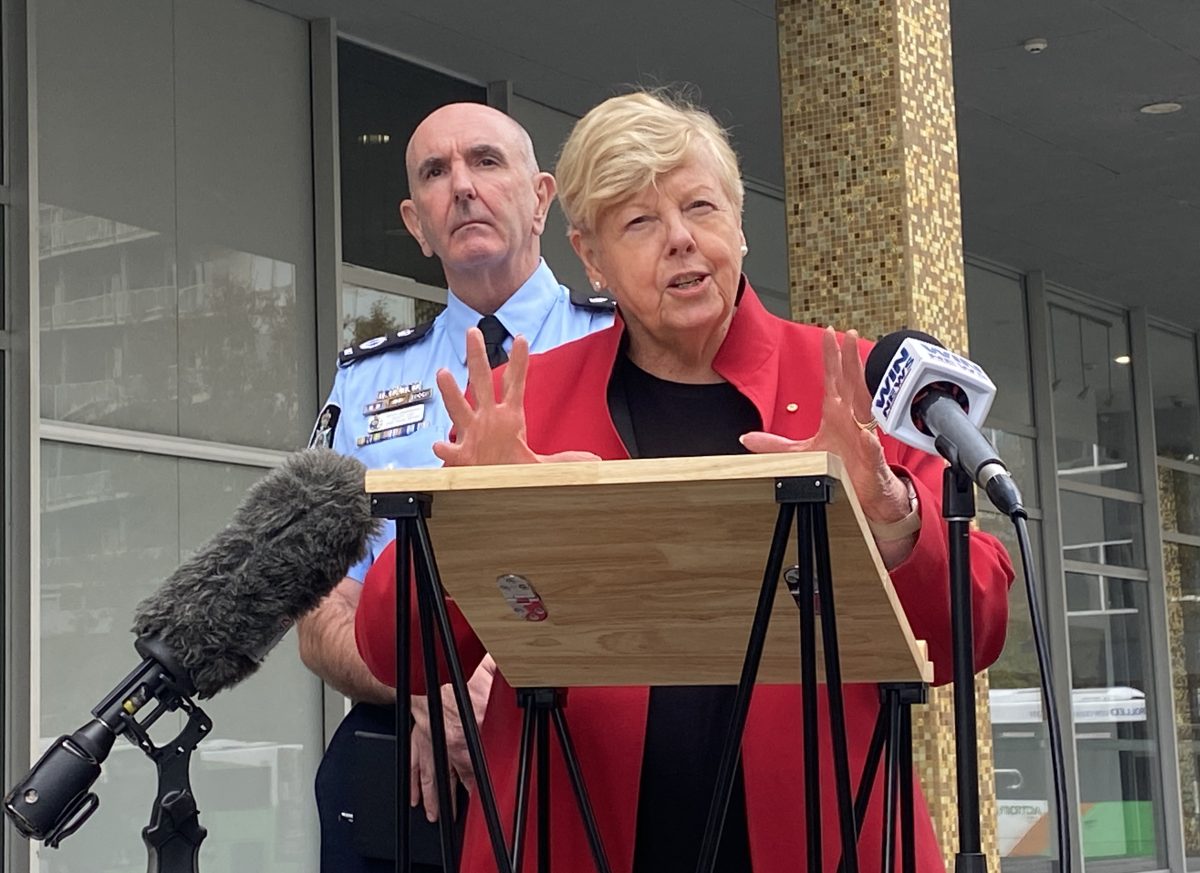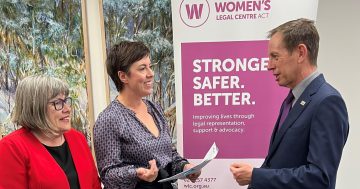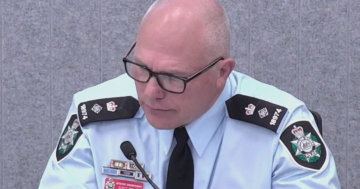
ACT Policing’s processes and policies were found to be a significant factor in why sexual assault cases weren’t investigated or were withdrawn by complainants. Photo: Claire Fenwicke.
CONTENT WARNING: This article discusses sexual assault.
An independent review is clear: “the predominant reason for low charge rates in the ACT is a failure to properly and appropriately investigate sexual offences.”
The Sexual Assault (Police) Review report looked at 684 reports of sexual offending made to ACT Policing between 1 July 2020 and 31 December 2021 that were not progressed to charge or dismissed.
Adherence to rape myths in ACT Policing, mistaken understanding of consent, lack of victim-centred responses, systemic issues and agencies struggling to keep up with demand have all been identified as reasons why victim-survivors are withdrawing from the Territory complaint process at a higher rate than other jurisdictions.
A persistent theme was cases being discontinued too early in the investigation.
Particular issues were found with the ACT Policing ‘Meet and Greet’ and evidence-in-chief interview (EICI) processes.
The former was established to build rapport, while the latter explained processes to complainants to make them feel comfortable and record a formal statement.
More than one-quarter of the adult sexual assault cases examined, and one-third of child sexual assault cases, were closed by police following the Meet and Greet stage, despite these meetings occurring before any actual investigative activity.
A total of 57 adult sexual assault cases and 28 child sexual assault cases were finalised as ‘unfounded’ or deemed to have ‘insufficient evidence to proceed’ following an EICI.
“In some cases, the EICI was used to determine no offence had occurred, without further investigation,” the report noted.
“The current ACT Policing practice fails to recognise that the option of an EICI is only one of a suite of special measures that should be considered on a case-by-case basis to support the collection of all relevant evidence.”
The review also found that ACT Policing incorrectly required EICIs from victim-survivors before proceeding with an investigation.
This meant other evidence, such as CCTV footage and forensic evidence, wasn’t collected.
“Requiring all victim-survivors to participate in a recorded interview early on in the investigative process is not required by law and does not reflect best practice,” it was noted.
Another concerning finding was that while 87 per cent of cases reviewed had an identifiable offender, only 17 per cent of suspects were approached by police in adult sexual assault cases and only 15 per cent for children. This included when they had a history of sexual offending and family violence.
“It was common for the case to be closed when a suspect refused to participate in a formal interview,” the report noted.
The report made 28 recommendations, including establishing a Standing Sexual Assault Review Mechanism to review all cases ACT Policing closed without charge and creating a Sexual Assault Advocate role to ensure victim-survivors are referred to appropriate resources and support investigators in taking a trauma-informed approach.
It noted that ACT Policing’s Operation Foster, which is investigating cases identified for possible further action or re-investigation by the review, will soon run out of money.
“At the time of writing, there were 170 cases awaiting possible further action by ACT Policing – more than 25 per cent of the total cases considered in the Review,” it noted.
“It will not be possible for ACT Policing to undertake this work by 30 June 2024.”
The review recommended 30 cases for immediate re-investigation, and a further 182 cases were identified for possible further action.
ACT Policing Chief Police Officer Scott Lee acknowledged that while improvements had been made to procedures and policies since the review period, more still needed to be done.
“I want to express my sincere regret that these victim-survivors were let down by police in the instances that have been captured as part of the review,” he said.
CPO Lee said some changes had been made to the Meet and Greet and EICI processes but their continued use was still being considered.
“There are other mechanisms we are considering such as other legal or victim-survivor supports that can be provided, that may actually provide us with an [avenue] to obtain evidence from a victim-survivor that may well replace an evidence-in-chief interview,” he said.
“The process that we have in place now is that [other] areas of inquiry are explored [such as gathering forensic and CCTV evidence] while we’re also talking with the victim-survivor about the potential of an evidence-in-chief interview.”

Report co-chair Professor Christine Nixon (with ACT Policing CPO Scott Lee) feels the report could be a blueprint for change across Australia. Photo: Claire Fenwicke.
Report co-chair Professor Christine Nixon urged the ACT Government to adopt and fully fund all recommendations as she felt they would “dramatically change” the way victim-survivors were treated in the ACT criminal justice system.
“I think once the community has confidence that when they report sexual assaults they will be taken seriously, be treated in a trauma-informed manner, I’m confident that things will improve quite dramatically,” she said.
Professor Nixon stressed anyone who had experienced a sexual assault should reach out for support and consider which avenue would be best for them.
“Consider your options about whether you want to go ahead and have the case investigated, look to get some advice, and then go forward [when] you’re in a position where you’re ready to go forward,” she said.
“I’m not encouraging everybody [to report], that’s not the point. It’s about providing a system where people feel they can go forward and have [their case] reported and investigated, and feel confidence in that.”
The ACT Government has four months to respond to the report, but has announced $380,000 in immediate funding to Victim Support ACT and the Canberra Rape Crisis Centre to improve the availability of supports.
Anyone impacted by sexual, domestic or family violence can contact 1800RESPECT on 1800 737 732 or Full Stop Australia on 1800 385 578.
Local support services include the Canberra Rape Crisis Centre on 6247 2525, the Domestic Violence Crisis Service (DVCS) on 6280 0900, and Victim Support ACT on 1800 822 272 or 6205 2022.
If this reporting has raised mental health concerns for you, call Lifeline on 13 11 14.
You can report a sexual assault by attending an ACT Policing station in person, calling 000 in an emergency or 131 444 for police assistance, or online if the sexual assault occurred more than six months ago.





















